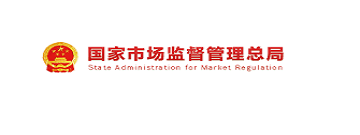
The State Administration for Market Regulation (SAMR) is a Chinese governmental authority department. It is responsible for regulating the following areas
- drug safety supervision
- quality inspection
- fair competition and commercial bribery
- issuance of business registration
- certification and accreditation
- management of intellectual property rights
- comprehensive supervision and management of the market order
The Administration was created in the 2018 Chinese overhaul of government administration by merging and consolidating the General Administration of Quality Supervision, Inspection and Quarantine (AQSIQ), the China Food and Drug Administration (CFDA), and the State Administration of Industry and Commerce (SAIC). This restructuring has been viewed as the most comprehensive Chinese government overhaul since the 1970’s.
The stated aim was the streamlining of work, elimination of duplication and improving communication between departments. As is true in all large bureaucratic organizations, merging or altering functions of this magnitude can cause a myriad of problems. It is important to understand how these processes will evolve as initial teething problems are overcome and efficiency is improved.
State Administration for Market Regulation Involvement in Mergers & Acquisitions
For any merger or acquisition of control that is considered a ‘concentration of undertakings’, a pre-merger notification must be filed with SAMR if the relevant parties’ turnover exceeds any of the following thresholds, as set out in the Notification Thresholds Rules and the Notification Guidance
- the total worldwide turnover of all parties to the transaction in the previous financial year exceeded 10 billion yuan and the PRC turnover of each of at least two parties to the transaction in the previous financial year exceeded 400 million yuan
- the combined PRC turnover of all parties to the transaction in the previous financial year exceeded 2 billion yuan and the PRC turnover of each of at least two of the parties to the transaction in the previous financial year exceeded 400 million yuan.
The Qualcom takeover of NXP Semiconductors (NXPI) was an example of how the SAMR can exert its influence. Although not actually rejecting the takeover, the administration simply delayed a decision until after the drop dead date had passed. Thus putting the responsibility on the acquirer. A decision which was widely seen as being politically motivated, but technically not actually so.
In light of this, traders are advised to practice a great deal of caution when investing in stocks which are subject to State Administration for Market Regulation authorization. Although these merger arbitrage spreads are generally wider, and offer superior trading profits, the risks are there for all to plainly see. Limiting exposure to the number of SAMR related deals in the traders portfolio is strongly advised unless the required legal skill and resources are available to the trader to act otherwise.
